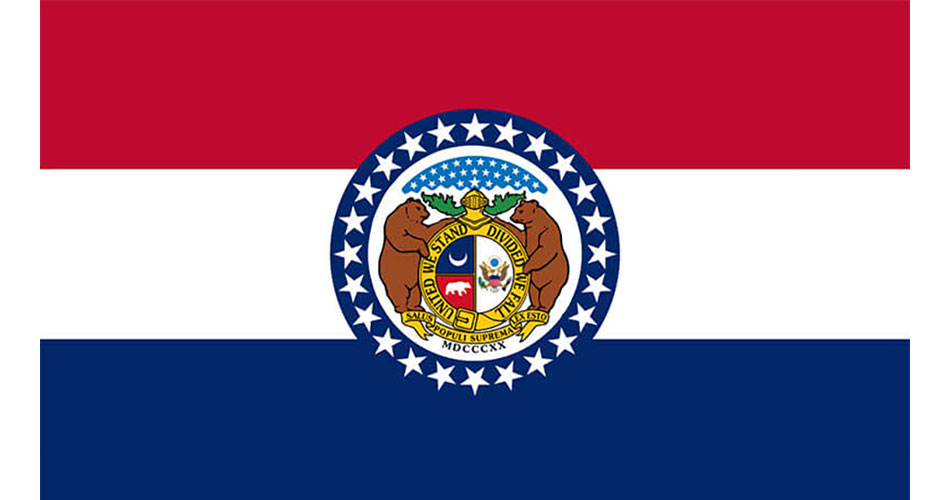Missouri’s grocery retailers are navigating a period of uncertainty shaped by federal trade disputes, state-level legislation, labor shortages and shifting consumer demand.

“I would say we’re pretty much like the rest of the country, in that we’re a little nervous,” said Dan Shaul, executive state director of the Missouri Grocers Association. “Everybody wants it to be good. It’s not horrible, but we’re not sure.”
That uncertainty is evident in how shoppers are building their baskets in stores.
“We’re looking at the filets in the meat case, but maybe we should just get the ground beef one more week,” Shaul said of the consumer mindset.
For grocers, they want to know what’s coming.
“Tariffs – how’s it going to impact us? Is it really going to impact us? What’s federal politics going to do? What’s Congress going to do? What’s Trump going to do?”
Shaul noted that while Missouri retailers are used to adjusting to weather events or crop failures, today’s challenges – extreme weather events, soybean exports, pork tariffs, energy costs – feel larger in scope.
“The grocery industry is used to dealing with changes, but normally it’s a snowstorm or an ice storm or a late frost or a freeze somewhere that causes us to have to get peaches from somewhere else. We will survive,” he said.
Changing marketplace
The state’s grocery economy is stable but uneven, Shaul said.
“People in Missouri are gifted with eating, and they love to eat,” he said. “We have some retailers who are doing very well. We have some that won’t see the end of the year. We have new retailers coming in.
“We have legacy retailers that we thought would be here forever, small independents that for one reason or another, they haven’t made it through this time. But there’s plenty of grocery in Missouri.”
That shift is changing the state’s grocery profile. Rural areas have lost more stores than they’ve gained, while urban areas have picked up ground.
“There are probably more food deserts in Missouri this time this year than there were last year,” Shaul said. “Dollar General … they seem to pop up everywhere, and I don’t think they’re good for the grocery industry. It gives communities a false sense that they have a food source that I wouldn’t want to rely on if I was in rural Missouri.”
Consolidation is also reshaping the industry. Regional players are acquiring legacy independents, often because of succession planning issues.
“The smallest independents – where are they going? Why are they either selling or leaving the market? … Maybe there’s not a family member that can do that. I think that’s a problem,” Shaul said.
He noted the hard work that goes into being an independent grocer and the fact that many young people just don’t consider it as a career.
“If you’re going to be a grocer, you’re going to work more than nine to five. But the reward of feeding the community, being part of the community certainly has its draws,” he said.
[RELATED: SNAP Incentives, Fresh Innovation And The Role Of Independent Grocers]
Pressures on independents
Independent grocers particularly are under strain.
“I think the healthy are very healthy. There’s some that aren’t very healthy, and those companies concern me deeply,” Shaul said. “Those who have prepared over the years and been well run, they’re going to be just fine. But some of those others, they’re in trouble, and sometimes it’s not because of anything they’ve done. It’s just market shifts.”
He added that Missouri’s regulatory framework has not always been conducive to helping independents survive and thrive. A recent worker benefits law – requiring paid time off regardless of hours worked – created major issues before it was repealed.
“It was a challenge to all of a sudden have to pay time off for an employee that may work five hours a week,” Shaul said. “Even big corporations had a tremendous time with it.”
The matter is expected to return to the ballot as a constitutional amendment.
“That’ll be our biggest battle on our state front, I’m sure, in the coming year. We need to figure out how we’re going to address this,” Shaul said.
He noted that the Trump administration’s “Big Beautiful Bill” is a mixed bag for grocers. “Tax breaks are good; SNAP choice, maybe not so good,” he said. “What our retailers typically do when given lemons, they make lemonade. I would rather us educate the consumer on what a good choice is than legislate it.”
He added that he has heard from many retailers that those who are truly hungry and need assistance are still going to eat.
“They’re still going to buy food, and we need to figure out how we can meet them at their need level. I think that’s a challenge.”
Shaul also noted that there are several stores along the Kansas/Missouri border, “where one side of the street is Kansas and the other is Missouri. If you have restrictions in one state and not the other, it drives business. We’ve seen that with tobacco.”
Missouri also is “fighting right now the redistricting issue,” Shaul said, which has the potential to “completely derail” the next legislative session.
“I would much rather us focus on what we can do together than just taking one side or the other.”
Workforce, energy costs
Labor challenges remain a concern across the state. “I’ve heard a lot of owners saying, ‘Well, I’ve been cutting a lot of meat lately,’” Shaul said.
“Those type of areas of expertise, I think, are going to continue to be a problem, and it’s going to push the industry to more and more boxed beef.”
Beyond specialty roles, grocers also face reliability issues. “I know our retailers would love to have a dollar for every time someone doesn’t show up after they’ve been hired,” he said.
Rising energy costs have added pressure. “This summer, residential bills have gone through the roof, but so have commercial bills, and that’s a concern,” Shaul said. “We’re having to buy power from outside the state of Missouri … we need to become more self-sustaining, where power is local, and it can be a little bit more efficient.”
Advocacy, association resources
Shaul said the MGA’s most valuable resource is its relationships within state and federal government and its ability to help members cut through bureaucracy and gain direct access to decision-makers.
“Our retailers’ time is incredibly valuable, and if we can help them navigate an issue – whether it’s WIC, SNAP, Department of Labor – so they don’t have to go through the phone tree of hell, where they keep getting passed around, we tend to take care of that and get them in touch with the right person,” he said.
Shaul emphasized the importance of unity as the industry evolves.
“We see more and more unity, working together, not just retailers, but retailers and vendors … I think we’re going to see consolidation. I think we’re also going to see within that consolidation a unified front going forward,” Shaul said.
“The retailers that are going to be there Jan. 1 have survived ‘25, and I’ll say that again in ‘27. They all have a common focus that they want to be able to serve the community. And I think communities are starting to realize how important [that] is.”
Shaul said the MGA also has been working with the National Grocers Association on antitrust legislation, “making sure that the single-store operator can have the same access to products as a multi-store operator … we need to have a system where all are created equal.”
Looking ahead
Despite the pressures, Shaul said he remains proud of how Missouri’s grocers have “handled these uncertain times of ‘25, and I look forward to a stronger group starting ‘26. That group is going to look a little different, but those that are around at the turn of the year are going to be stronger because of it.”
And for Shaul himself, continuing in the family tradition of grocery association leadership, the work is personal.
“I would consider myself a legacy association person. My grandfather, my father ran the St. Louis group,” he said. “I’ve only been doing this for 27 years now, and I’m not hanging anything up anytime soon. We’re going to continue to grow and have a positive impact on the industry.”
[RELATED: Road To Healthier America Runs Through Independent Grocery Stores]

